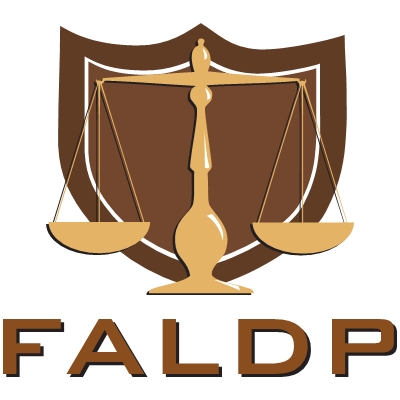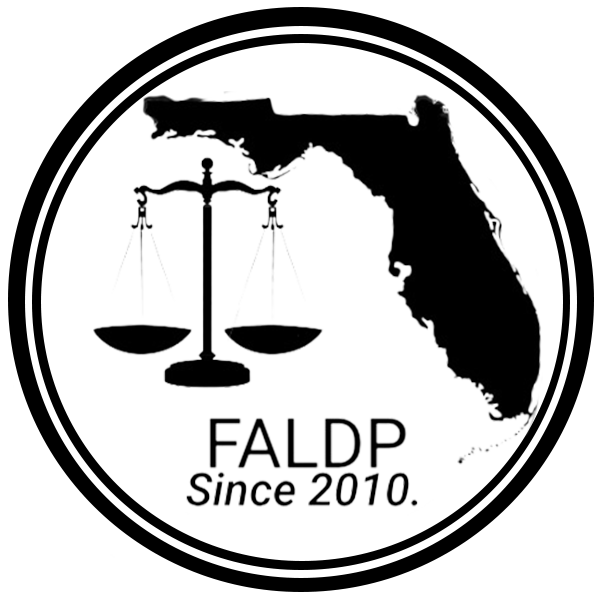800-515-0496
Bankruptcy Petition Preparers

Faced with mounting debt consumers search for a way out. Personal bankruptcy is the best solution for some, but others are better off working out their debts with their creditors, or even taking no action at all. There is no one size fits all solution. The best solution for each family and each individual depends on the specific circumstances – including the debtor's age, type of debt, income, and assets.
There are two types of personal bankruptcy -- Chapter 7, and Chapter 13. Chapter 7 is liquidation bankruptcy in which a consumer can liquidate and discharge certain debts. The outcome is that the consumer no longer owes the discharged debts at all. In Chapter 13 the debtor sets up a payment plan to repay their debts within a certain time period.
Many of our FALDP members prepare bankruptcy petitions for consumers. Please contact your petition preparer directly to find out about specific services and methods of doing business. Some of our document preparers have bricks and mortar stores, and others are completely virtual businesses.
Bankruptcy petition preparers charge a few hundred dollars. for the documents required in a Chapter 7 or Chapter 13 Personal Bankruptcy petition. As with any other process, a petition preparer may not give you legal advice, and may not represent you in court.
Your preparer is not allowed to tell you which type of bankruptcy you should file. Please educate yourself on this site and elsewhere to find out whether Chapter 7 or Chapter 13 is appropriate for your situation.
Means Test
One of the ways for a consumer to determine whether Chapter 7 is appropriate is by using the "Means Test". A Bankruptcy Petition Preparer (BPP) is allowed to help a consumer with the math portion of the means test, providing the BPP does not advise the consumer on which type of bankruptcy to file.
"Section 707(b)(2) of the Bankruptcy Code applies a "means test" to determine whether an individual debtor's chapter 7 filing is presumed to be an abuse of the Bankruptcy Code requiring dismissal or conversion of the case (generally to chapter 13). Abuse is presumed if the debtor's aggregate current monthly income (see definition above) over 5 years, net of certain statutorily allowed expenses is more than (i) $10,950, or (ii) 25% of the debtor's nonpriority unsecured debt, as long as that amount is at least $6,575. The debtor may rebut a presumption of abuse only by a showing of special circumstances that justify additional expenses or adjustments of current monthly income."
Bankruptcy Code
Article I, Section 8, of the United States Constitution authorizes Congress to enact "uniform Laws on the subject of Bankruptcies." Under this grant of authority, Congress enacted the "Bankruptcy Code" in 1978. The Bankruptcy Code, which is codified as title 11 of the United States Code, has been amended several times since its enactment, most recently modified in 2005. It is the uniform federal law that governs all bankruptcy cases.
The procedural aspects of the bankruptcy process are governed by the Federal Rules of Bankruptcy Procedure (often called the "Bankruptcy Rules") and local rules of each bankruptcy court. The Bankruptcy Rules contain a set of official forms for use in bankruptcy cases. The Bankruptcy Code and Bankruptcy Rules (and local rules) set forth the formal legal procedures for dealing with the debt problems of individuals.
Four signs you should consider bankruptcy:
- 1. Your balances won’t go down. Are
you making payments on your debts, but the amount you owe never gets
any smaller? If you are only ever making payments on interest and
are not able to touch the principal amount of your debt, it may be
time to consider filing for bankruptcy. As a rule of thumb, if your
debt cannot be paid off in full after about three years, it may be
in your best interests to consider bankruptcy.
2. You are using retirement funds to pay your debts. Raiding your retirement funds is essentially stealing from yourself during a time when you will be relying on your savings to get by. Whether you are considering or have already taken an early withdrawal, this is a sign that bankruptcy may be the solution you require. Paying off your loan faster through the use of your retirement funds will cost you more in the long run when you don’t have those resources later on.
3. Others will suffer if you do not file. Caring for dependents like children, a disabled family member, or an elderly parent can be financially draining. If you find yourself unable to both care for your family and manage your debts, your family’s well-being should come first. Filing for bankruptcy can help relieve you of your debts and allow you the fresh financial start you need to continue ensuring the health of your family.
4. Your mortgage is under water. Bankruptcy can provide much-needed relief if you are upside down on your home.
Filing for bankruptcy may help in the following ways:
- It can help you catch up on your payments or obtain a loan modification so that you do not lose your home
- It can erase debt that could be due after a foreclosure
- It can eliminate a home equity loan or second mortgage
- It can help you avoid a large tax bill from cancellation of debt income; and
- It can free up money that you were using to pay other debts so that they can now be applied to your mortgage payment.
There are many indicators of problems with debt and financial uncertainty. Because every situation is unique, these problems can show themselves in a variety of ways. Whether you’re facing troubles making payments now, have encountered an unforeseen event that impacts your income, or are simply concerned about getting control of your finances for the future, filing bankruptcy may benefit you.
Copyright 2010-2025 ~ All rights reserved.
